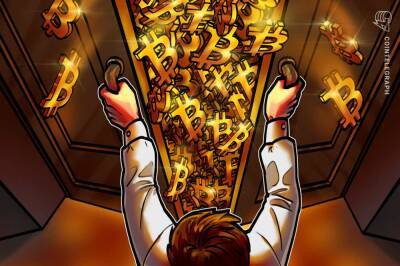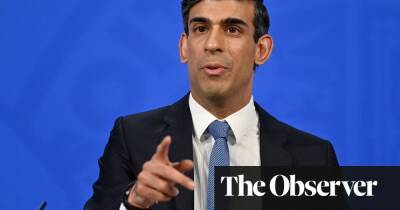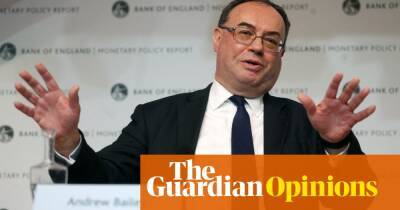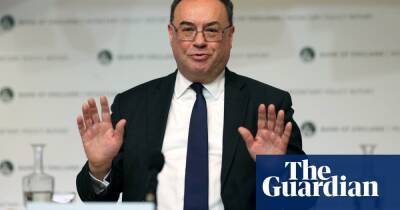Andrew Bailey’s wage restraint call is not a forecast of 1970s-style inflation
Andrew Bailey wants British workers to think again when they ask for an inflation-busting wage rise. “I’m not saying nobody gets a pay rise, don’t get me wrong, but I think, what I am saying, is we do need to see restraint in pay bargaining otherwise it will get out of control,” the Bank of England governor told BBC radio.
With inflation already high and soaring skywards to more than 7%, Bailey was warning that Thursday’s increase in interest rates to 0.5% would be the first of many if workers did start a rush of demands for double-digit wage increases.
Such comments from someone who earns £495,000 a year were met with a hostile response from unions, while the PM’s spokesperson sought to distance No 10 from them. Summing up the general feeling, Unite boss Sharon Graham said: “Why is it that every time there is a crisis, rich men ask ordinary people to pay for it?”
Yet this has not always been the trade union position when economists plead for help slow rising prices. In the three years after the 1974 election, unions pledged to do their bit to keep wages below inflation – just as now, when pay was soaring after an energy shock – as part of a social contract. But in 1977 unions abandoned the vow and have not made such a commitment since.
In 1975, the first year of the deal, pay increases spiked at 29.4%, above the annual inflation rate of 25%, but in the two succeeding years, real wages fell.
In contrast, wages growth without bonuses stood at 3.8% in November last year – the most recent month for which official figures are available. The Bank of England’s monetary policy committee, which Bailey leads, estimates that pay growth rose a little higher last month to 4.5%.
Bailey expects wage demands to increase dramatically from
Read more on theguardian.com






















